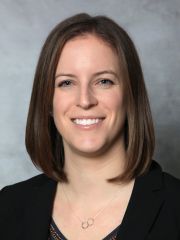When I see “good job, read more” on a learner’s assessment form, I chuckle because I have most certainly received that feedback before, as have many other health professional trainees. To some educators, this appears to be effective reinforcing feedback, but a larger number of educators cringe on seeing that phrase, because neither did it take much effort to write those four words, nor does this feedback help a learner improve and grow.
Feedback in medical education is changing as medical education systems evolve. Implementation of competency-based education models require more workplace-based assessment, and clinical teachers are recommended to move away from unidirectional feedback delivery from teacher to learner, towards a relational approach situated within a positive learning climate. Too many faculty development programs focus on training teachers to give better constructive feedback, in order to help learners improve their performance. However, giving constructive feedback that does not threaten a learner’s self-esteem or infringe upon their autonomy can be challenging, and politeness can inhibit meaningful feedback conversations. While it may seem easier to sing the praises of an excellent learner, giving positive feedback is challenging to do well.
A recent Harvard Business Review article by Marcus Buckingham and Ashley Goodall, and a related podcast, made me wonder how we can shift our focus in medical education towards anchoring feedback in learner strengths rather than their deficiencies. Based on their research, the authors wrote that getting attention to our strengths from others catalyzes growth, whereas attention to our weaknesses smothers it. In their book “Nine Lies about Work,” Buckingham and Goodall emphasize the value of taking a strengths-based approach in providing feedback to employees. They argue that by focusing on mistakes, you will simply get fewer mistakes. However, a focus on strengths will allow people to ramp them up further and thus achieve excellence. In medical education, we aspire to train excellent physicians.
While there is clearly a role for constructive feedback in medicine (for example, noticing when a learner missed a step in a procedure, intervening for the sake of patient safety, and debriefing with that learner afterwards), is there a role for a more strengths-based approach in the current culture of medical education? Perhaps it is also time to discard the definitions of strengths (something we are good at) and weaknesses (something that we are not as good at) and embrace the definitions of Buckingham and Goodall. “A strength is an activity that strengthens you and a weakness is an activity that weakens you.” How do we get our learners to better play to their “strengths”?
What makes “good job, read more” unhelpful? When I think back to clinical rotations during my residency training, this phrase suggested to me that I was doing a satisfactory job, with no major areas of concern. However, I wanted to improve and grow, and “read more” didn’t really help me take my performance to the next level. More detail would have required effort from my supervisor, but would have made the feedback much more meaningful if I knew why or how a task was done well so that I could continue doing them rather than doubt my approach. As Buckingham and Goodall state, “learning is less a function of adding something that isn’t there than it is of recognizing, reinforcing, and refining what already is.” Going forward, I will strive to have clear conversations with my learners about their strengths, what it is that they are doing well, and what they should continue doing. Next time someone says, “good job” to me, I will ask them “why was that a good job?”
How do you engage learners in feedback conversations? What are your experiences with giving or receiving positive/reinforcing feedback?
Did you know that the Harvard Macy Institute Community Blog has had more than 185 posts? Previous blog posts have explored topics including using learning theory to make technology work, developing leaders through sanokondu, and designing better surveys for education and research.
Jessica M Trier

Jessica Trier, MD, FRCPC, CSCN Diplomate (EMG) (Assessment ’18; Educators ’19) is an Assistant Professor in the Department of Physical Medicine and Rehabilitation at Queen’s University in Kingston, Ontario, Canada. She is the CBME Lead and Undergraduate Medical Education Director for the Department. Jessica’s areas of professional interest include feedback, coaching, and mentorship. Jessica can be followed on Twitter and/or LinkedIn or contacted via email.

